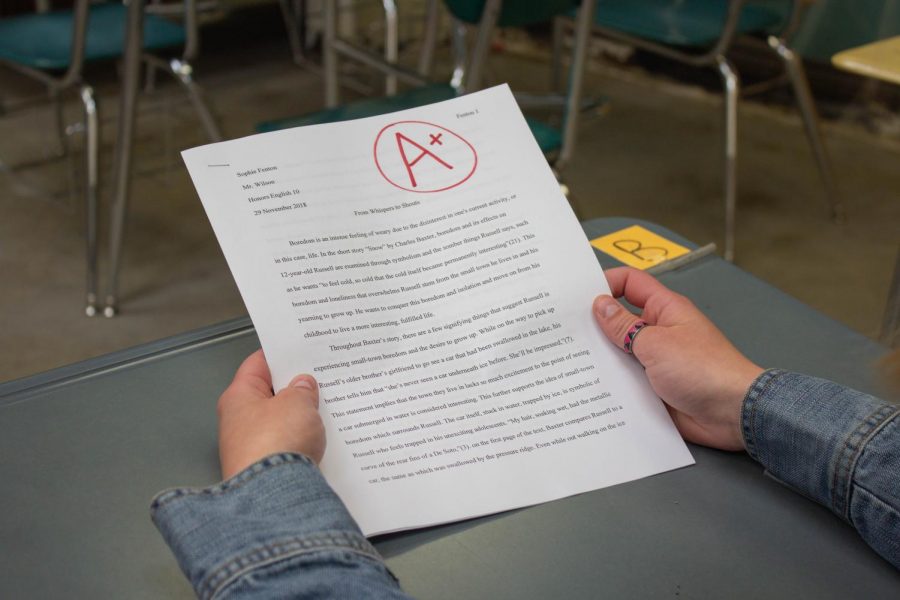The issue with our grades
Some students find themselves more concerned with grades than learning.
June 7, 2019
The American education system needs to reevaluate how they think about grades.
Our society places an intense focus on grades. This fixation with grades can sometimes lead to students using a variety of ways to try to avoid undesirable grades.
I conducted an anonymous survey through my instagram and got responses from 47 students, most of which had a 3.5 GPA or above.
I found that over one third of the students had tried to switch out of a class because they felt that they wouldn’t have achieved a good grade in the class. Kids often avoid classes that they know they will learn a lot in, but may get a lower grade, because they don’t want it to ruin their GPA.
One student that was surveyed who tried to switch out of a difficult class said, “I felt like the potential growth I might get out of the class wasn’t worth risking my GPA.” So, oftentimes, students are afraid to challenge themselves academically because they consider their grades to be more important.
This means that kids are missing out on tremendous growth opportunities and avoid taking risks for fear of taxing their grades.
Switching out of classes isn’t the only thing that students do to keep their GPAs high. Kids will forecast for classes just because they think it will be an easy A, rather than because they are interested in the subjects.
I also found that a third of the kids had decided not to take a class they were interested in just because they thought they wouldn’t receive the desired grade.
One of the most questionable things that students do to save their grades is cheat on tests. The survey revealed that 68 percent had cheated at least once on a test.
In my opinion, the problem isn’t that these students don’t view academic integrity as important, just that they see their grades as something that is more important. In fact, it seems that many students view their grades as the most important thing in relation to school.
The survey indicated that 64 percent of students felt that their grades were more important than gaining purposeful knowledge from their classes.
After doing this research, it seems evident that our obsession with grades has had some pretty damaging effects on the students’ learning. The whole purpose of school, which is to learn so we can be prepared for the future, has turned into going to school for the purpose of receiving a good grade.
Because students only care about their grade, they sometimes spend significant hours in class and gain little knowledge from it. Students in easy classes don’t take the time to truly understand the material if they are satisfied with their grade, and students in difficult classes don’t take the time to appreciate all the progress they’ve made if the letter in the gradebook isn’t what they want.
Part of the problem is there is nothing in the educational system that rewards students for the sole purpose of learning. Valedictorian is based off of the highest GPA, and getting into top colleges and many scholarships require a high GPA.
It’s also necessary that we change the conversation around grades in the classroom. The message seems to be that in order to be successful you need to always get a high grade, because oftentimes students hear that success is measured by the percentage of answers they get right on a test or quiz.
It’s important that we talk about success in the classroom as being more about the process of learning, mastering new content, and improvement when seen.
Grades can be a good thing, to some extent, because they provide kids with the motivation to master the content that they are given. However, it is important to recognize that they can sometimes have the opposite effect.
If teachers, students and administrators did small things to change the way students viewed their grades it would be extremely beneficial in the long run. Not only would kids be less stressed, but also their educational experience would be more meaningful.
Our school and society as a whole need to change their mindsets on grades. In doing so, the time spent in school could be more valuable and useful. A change in the system can allow for more creativity and opportunities.
Sophie Brands is a Tigard Tualatin School Board Student Representative for Tigard. In her essay for her application, she wrote about the problem of grades. After a meeting with one of the board members, she decided to write an article and discuss the issue in full. This story appeared in our 2019 Senior Magazine.










